Warning: Parameter 2 to wp_hide_post_Public::query_posts_join() expected to be a reference, value given in /home/fearlessmen/public_html/wp-includes/class-wp-hook.php on line 310
Trying to eat in a more healthy manner? That’s a good plan. Reading food labels is one of the first steps to know what you’re putting in your body. But not all food labels are created equal. Remember that (excluding the nutrition facts and ingredients) food labels are made by marketers-marketers who are trying to sell more of their company’s product.
Here are 3 food label tricks you should be aware of.
[divider]
Organic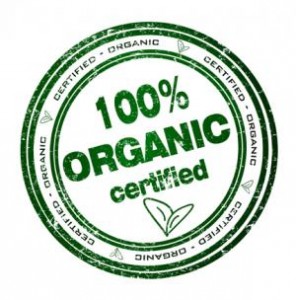
Scientific research has not proven that organically grown is better than that which we consider “non-organic” food.
Take a look at this really interesting study from some folks at Stanford (you’ll have to buy the article if you want more than a synopsis): Annals of Internal Medicine.
In 2010 the organic food industry had ballooned to $26.7 billion. How? Marketing. Awareness. And good labels.
Simply because a food label has the word “organic” on it doesn’t mean it’s good for you. I saw the organic version of “Cheetos” at a wholefood store this week. And I bought them. And they tasted stale. And they still weren’t good for me.
Organic food products are legally allowed to have a percentage of non-organic products mixed in with them to boot.
[divider]
Gluten Free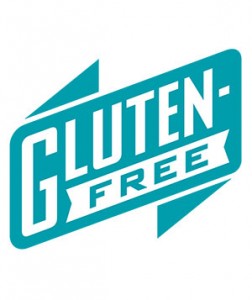
Do you have celiac disease or a wheat allergy? Then stick to the gluten free stuff. Everyone else, don’t be deceived. Eating gluten isn’t a sin. You won’t die, rot in hell, or explode from eating a gluten based product.
What is gluten anyways? Doesn’t it sound inherently evil? It’s not. It’s just the substance that gives elasticity to dough and grains. The reason products are marketed as gluten free are two-fold: a) to help people that have gluten intolerance, b) charge more money for a specialty product to people that don’t actually need them.
[divider]
No High Fructose Corn Syrup
Despite how sinister people make High Fructose Corn Syrup (HFCS) out to be, studies have shown it’s no worse for you than the average table sugar. The body does nothing metabolically different with HFCS than sugar. The two have similar chemical makeup, and the same amount of calories.
Corn is not bad for me, right? And what is the “High Fructose” part? Sugar is sucrose. Sucrose is 50% fructose and 50% glucose. HFCS has 5% more fructose than sugar. Get it? “High” fructose. Somebody out there has made us all dumber, and is getting us to pay more money for vilifying my beloved syrupy goodness.
I love you HFCS.
What about the labels? Just because a food label has an alternative to HFCS slapped on it doesn’t mean it’s going to be any better for your waistline. Being overweight is one of the unhealthiest things you can do. And sugary products-no matter how the food label spins it-are what’s unhealthy for you.
[divider]
Defeat Food Label Deception
Don’t fall prey to paying a premium for food that isn’t actually healthier for you. Now, this is coming from a guy who shops at Sprouts, a whole food market. But I’m not paying higher prices there. It’s actually cheaper at this grocery store than big chain grocery stores near me.
When I look at food labels, I’m not so concerned about the marketer’s highlighted words and well-scripted copy. I’m going to look at how much of the products calories come from unsaturated fat (the best source of energy for the body), fiber and non-sugary carbs, and protein. I do of course look at sodium, cholesterol and ingredients. Ultimately, that’s the part of the food label that’s going to inform me, not the fancy art on the front of the product.
Like this article? You may also like
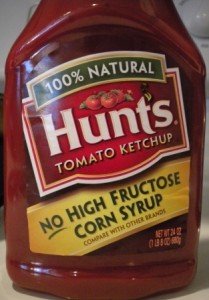
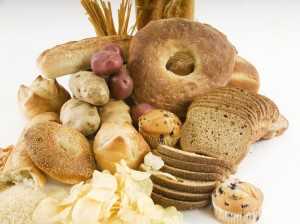
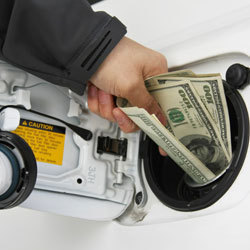
The “organic” thing I know something about — I know that you’ve got to be really careful because there’s regulation on what a company means when they say “organic” “100% organic” “USDA certified organic”… and like you said, man, it doesnt’ always mean what you think it does. It’s worth people looking more in to so you know what the different words do and don’t mean exactly. I would argue that TRULY organic food IS better for us (well, less cancer causing stuff, which I think is better for us), but few food on the shelves are actually truly organic, even if they say so!
I think one of the major problems is people assume labels are way more regulated than they are. But they’re for marketing purposes, and rightly so. It’s to bad people get misled by bad food label practices.
Labeling gimmicks do get pretty absurd. Companies can put a spin on nearly anything to make it sound healthier than it really is. The other day my girlfriend brought over some 25% less sodium chicken noodle soup when I was sick. It was still way too salty to eat, but with the labeling they could make it sound better by comparing it to their salt loaded original version. The other area that lots of companies were being sneaky was environmentally friendly labels. So many things would get some kind of special logo while doing very little to deserve it. Labels really should have more regulation. I guess all the big food companies are too powerful though.
Whenever I see “less sodium” or “less fat” on a product that’s already probably not healthy, it already makes me not want to buy it. And I’m often curious, “25%” less compared to what? Their other products? Or phantom products from some other company they aren’t even referring to?
Yeah I try to stick to stores like Whole Foods & Trader Joes because they seem to actually care about the affect it has on the body. Course I know there’s probably holes in their marketing too, but I think the health-snobs that shop at the stores are more likely to call them out. haha. It’s a little pricier but I prefer Whole Foods because they source local foods…and after watching the docu (see below) that excites me. It’s so encouraging to know there are people out there who still enjoy farming & producing food and actually care about the people eating their products…instead of just trying to make big bucks. Supporting people who emjoy what they do and care about the food they make…and knowing I’m going to feel better and pay less in medical bills is worth paying a little bit more to me 🙂 It also has helped me stop letting food go to waste because if I pay a little more, I want to make sure it gets in my body instead of going bad/stale and ending up in the trash! Haha..
Check out this great little documentary by by friend Toby:
http://toplantacity.tylerfaires.com/
Yeah I don’t want more expensive products to be tossed either! I was reading recently that in America 40% of our food is thrown away (25% in homes, an even higher percentage in grocery stores and restaurants). But one thing that is tough about organic food is that it doesn’t have as much, or any, preservatives. So that means my Ezekiel bread is going to go bad fast even in the refrigerator :(.
Yeah…it’s a little less convenient. I think it’s worth it though. I’ve gotten into the habit of taking little shopping trips every week. Have you tried freezing your bread? That’s what my roommate does. With a toaster or toaster-oven thawing doesn’t take too long.
Nah, if I froze it it wouldn’t be readily available and I’d be discouraged from eating it :). But I do toast it. Ezekiel bread is gross unless it’s toasty. Actually write now I’m eating these Ezekiel english muffins. The best.
You should try Crumpets from Trader Joes. I’m addicted. Probably not as good for you as the Ezeks though.
I loved that Stanford study. While I love fresh fruits and vegetables as much as the next guy, I’m not going out of my way for all the organic stuff. Instead, I head for the farmer’s market. Fresh and helping the little guy.
Yeah man Farmers Market is the stuff. The freshest of the fresh!
Awesome Post!
When I go grocery shopping and I see products that have labels such as organic or gluten free, I make sure that these logo as from third parties that mandate these sort of things. Having a product with a fancy logo claiming it is organic is nothing more than marketing fluff. It is scary & sad how many people fall for this sort of advertising.
What’s misleading is when a label seems to state the product is organic, whereas it might just have one organic ingredient. There’s some spicy blue corn chips I like. And the back label states “made from 100% organic blue corn.”
I don’t doubt the blue corn is organic, but what about all the other ingredients? Misleading to say the least.
It really doesn’t matter, b/c I love them and don’t care how organic they are.
The reason I buy organic is because of pesticides.
Truly organically grown fruits and vegetables are grown without the use of pesticides.
I used to think that I could just put the fruits & veggies and wash pesticides off, but it turns out that the pesticide gets absorbed into the skin, so washing has little effect.
I don’t always buy organic, because the cost, but for some products I do buy organic.
Fortunately the grocery store I shop at only sells organic produce, and it’s less than the chain stores. I was surprised to find out that the verdict is still out on what low levels of pesticides do to adults. The current findings are nothing. In fact, people on organic diets have higher levels of phosphorous, according to the Stanford study I refer to.
Nevertheless, people have been eating “organic” almost the entire history of the human race, and that’s done us pretty well.